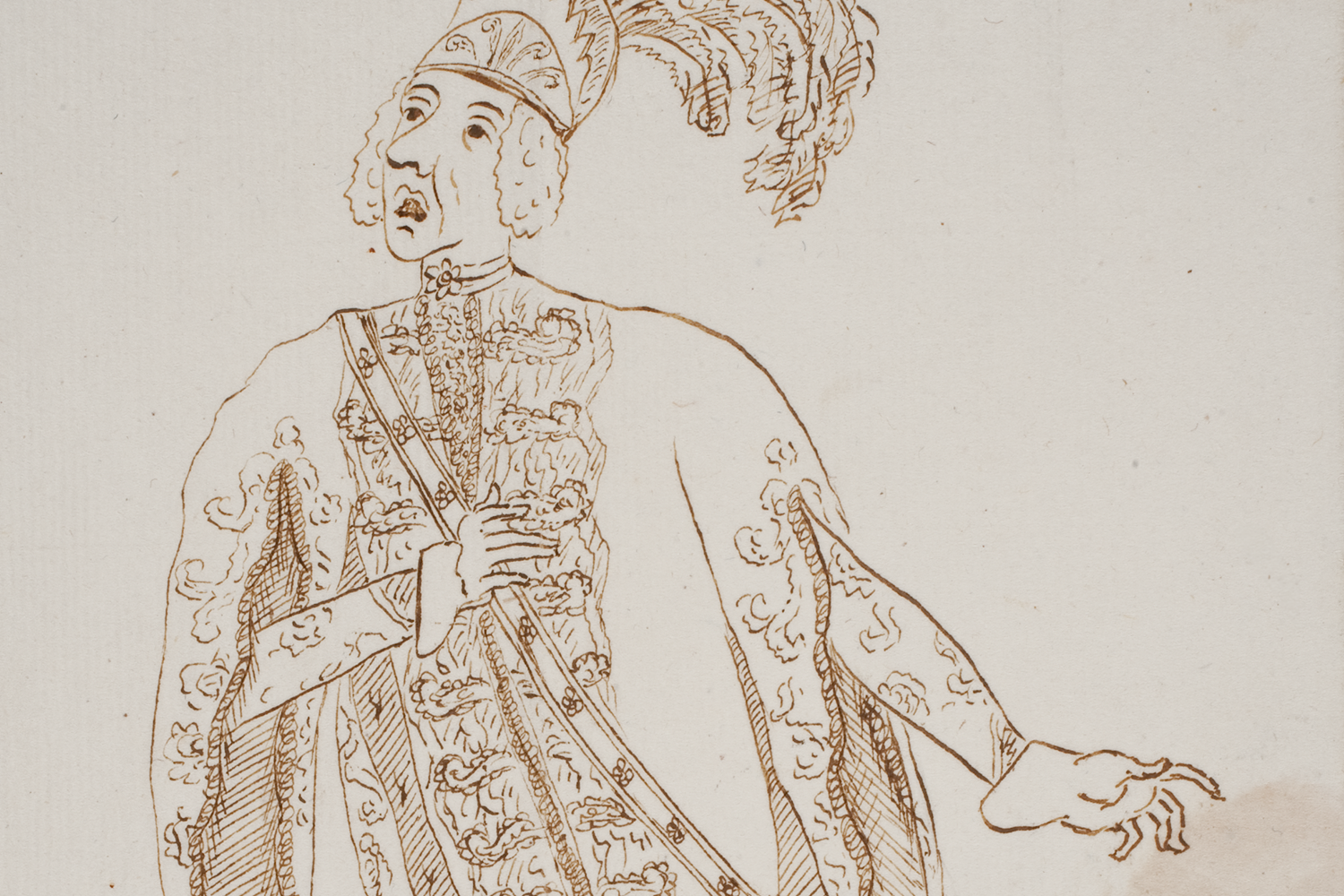
Anton Maria Zanetti di Girolamo, "Giovanni Battista Paita", Penna e inchiostro bruno, carta bianca. ©Fondazione Giorgio Cini

Anton Maria Zanetti di Girolamo, "Giovanni Battista Paita", Penna e inchiostro bruno, carta bianca. ©Fondazione Giorgio Cini
The September meeting of the Accademia Vivaldi, led by Gemma Bertagnolli, is dedicated to the themes of power, justice, and the legitimacy of command, analyzing the figures of sovereigns—just rulers vs. tyrants—in Vivaldi’s works (in particular Tito Manlio, but also Teuzzone, Bajazet, Ottone, Giustino, Motezuma, etc.), in order to highlight the different styles that characterize their exercise of authority. Attention is also focused on the moral responsibilities of the ruler, the relationship between power and subjects, and the emergence of a new awareness of individual rights, including those of women, a theme that began to gain ground during this period.
The meeting will include an in-depth conference, organized in collaboration with the research group La drammaturgia musicale a Venezia (1678-1792) (Musical Dramaturgy in Venice (1678-1792)) of the Ugo and Olga Levi Foundation, entitled I limiti del potere nel XVIII secolo. The duties of rulers and the rights of subjects in Vivaldi’s works. Held by Giada Viviani, it will take place on Thursday, September 4, at 6:30 p.m. at Palazzo Giustinian-Lolin, headquarters of the Levi Foundation.
The Academy will conclude with a concert-narrative on Friday, September 5, at 6:00 p.m. in San Giorgio, in which the students of the course will present arias from Vivaldi’s opera Tito Manlio, RV 778, performed in Rome during the 1720 carnival at the Antico Teatro della Pace.
The figure of the Consul of Rome, Titus, finds himself at a crossroads: should he apply the law or listen to his heart? A tragic-heroic dilemma, which encounters an inner conflict, unfolds in Republican Rome in the 4th century BC. Titus’ son, Manlius, with the fire of youth animating his valiant warrior spirit, disregards his father’s orders and disobeys the Law of the Senate. His guilt therefore deserves death, and the fatal sentence must be handed down without hesitation by Titus, who, before being a father, is Consul of the Romans and must apply the Law to which even the leader is subject. Justice must be done, and it will be fate, on which the destinies of all human beings, subjects and powerful alike, depend, that will decide.
With the end of the 17th century, the era of great plague epidemics came to an end, and the period in which Vivaldi lived and worked did not see Europe as the scene of real pandemics; consequently, his artistic legacy does not address this issue. Instead, there was lively debate on the different possible forms of state organization (monarchy vs. oligarchic republic) and on the limits to the legitimacy of power, which were indispensable precursors to the subsequent development of European thinking on democracy. In the first half of the 18th century, musical drama dealt mainly with the problem of the absolute sovereign, exploring the distinction between the ‘enlightened’ exercise of this function and its degeneration into tyranny. central to this is the reflection on the responsibilities of rulers towards their subjects and the rights of the latter, with regard to which, in these decades, a new awareness began to develop, also reflected in the incipient attention to women’s issues.
Conference and concert both free admission subject to availability.

Anton Maria Zanetti di Girolamo, "Giovanni Battista Paita", Penna e inchiostro bruno, carta bianca. ©Fondazione Giorgio Cini